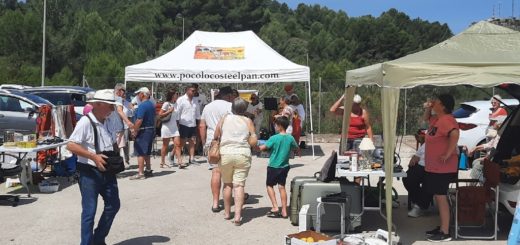What are the rights and obligations of living on a community?

The following report was prepared by an inhabitant of Manzana M8 of Gata Residencial and checked by a law firm. Although it was intended for owners on Manzana M8, it applies to all communities in Spain.
The M8 block Community
The M-block property is an detached residence within the Gata Residencial urbanization.
For the Spanish Law of Horizontal Division (Ley de Propiedad Horizontal) the detached residence is the same as an apartment.
The owners of property within the residential complex that provide shared amenities for example swimming-pools and grounds maintenance etc. are responsible financially to maintain those shared facilities.
To manage such matters the M-block has a Community of Owners which will have a President and a Secretary and will hold meetings each year to discuss and decide on issues of mutual interest regarding the maintenance of the community fixtures and amenities.
There are a number of important aspects of this responsibility and to make sure that new owners of property in Spain are aware of these issues. Each Community of Owners is regulated by the ‘Ley de Propiedad Horizontal’ legislation of 1960, as revised by legislation in 1999.
Common Ownership
Upon purchasing a property in the M8 block the new owner also becomes the owner of a fraction of the common areas of the complex. The common areas are split into hundredths and each owner has a specific number allotted to them typically according to the size of the property that they own in the complex.
Of course with ownership comes responsibility and there is an annual fee to be paid in order to maintain all of the common areas and amenities. The fee paid by each owner corresponds to the number of shares in the complex that they have been allotted. The number of shares that have been allotted to each property can be discovered by checking the title deeds of the property.
Meetings
The annual general meeting held each year is when the officers of the community are elected and when they must provide the yearly accounts which describe in detail how the fees have been spent in the previous year and the budget for the following year is set.
The basic objective of the annual meeting is to decide on all of the most important questions that impact on the organization and functioning of the community. Six days notice must be given to each owner regarding the holding of a general meeting.
The decisions of the meetings are taken by a vote with each owner’s vote being weighted according to the number of shares they have been allotted in the community. A simple majority is normally sufficient for most decisions and if an insufficient number of owners attend the meeting to provide that majority a second vote may be held half an hour later that only requires a simple majority of those present.
The decisions reached must be written down in minutes and a summary of the decisions must be sent to each owner for it to have effect in law. If an owner has an objection to any decision they must formally protest within 30 days.
Administrator
The Community M8 block members appoint a professional (registered) administrator to administer the daily operation of the community, and he is paid a regular fee for this service.
The administrator shall manage the efficient running of the community’s common elements, he shall also carry out any other function conferred by the general meeting.
He prepares a budget of estimated expenses for the coming year and presents this at the general meeting for the members’ approval, they must vote to accept it or not. He must keep the records of the community and makes sure the minutes are properly written.
All requests and needs of the owners will be directed to the Administrator.
The President may terminate the services of the administrator at any time, if he feels that the administrator is not carrying out the duties specified in the contract. This decision must be previously submitted to the general meeting for approval.
Any member of the community may apply to a judge to have an Administrator’s action annulled when he feels that it is contradictory to any provision of the community laws.
The administrator must keep the records and accounts of the community at the disposal of the members.
Obligations of the Community of Owners
The community of owners is obliged to carry-out the building work and repairs necessary from time to time to adequately maintain the fitness for purpose of all buildings with particular regard being had to structure, safety, accessibility and habitability. Any owners who object to or delay the carrying-out of such repairs can be held personally liable for any administrative penalties suffered by the community.
The community is also required to carry-out alterations necessary to provide access to the building for any disabled person or persons over seventy years of age who are living there where the cost does not exceed the amount of three month’s community fees.
A common issue that can affect communities of owners is the failure of one or more of the owners to pay the annual community fee. It becomes the responsibility of the community to pursue such debtors, eventually via the courts (Juzgados de Primera Instancia e Instrucción) if necessary. Before getting to that point the community must have reached the decision to deal with the debtor at a legally convened meeting and have communicated this decision to the debtor-owner in the prescribed manner.
Owners Obligations – Private Property
Each property M-block owner may make those alterations they consider appropriate to their property as long as no alterations are made to the common structure of the building, nor any detrimental impact on the properties of the other owners.
Property owners may not carry out any activities (or professions) within their dwellings that are prohibited by the statutes of the community of owners or which may be described as dangerous, damaging or detrimental in general.
Any other owner may formally complain to the President of the Community of Owners about any such activity whereupon they President shall request the immediate cessation of all such activities before initiating legal measures approved by a meeting of the community of owners.
Each owner should also maintain their property in a good state such that no damage is caused to other properties as a result of failure of any installation in their property.
Owners Obligations Regarding Common Areas
Any area of the building or urbanization that is not reserved for the exclusive use of any of the individual owners is by definition a common area, available for use by all. Common areas are normally one of four possible types:
1) Physical structures (foundations, pillars, floors, façades)
2) Installations, Conduits (Electrical installations, Guttering)
3) Community Areas (Swimming-pools, playgrounds, gym areas)
4) Service Areas
Each M8 block property owner has the right to use and enjoy common areas of the building or urbanization in common with the other property owners. However, they may not alter any common area and if there is an urgent need to repair a common area this should never be undertaken privately but communicated to the administrator of the community.
Property owners must consent to access to their private property where necessitated to carry out work necessary to maintain common areas.
Statutes and the Internal Rules of the community
M8 block have a set of rules which governs the property owners rights and standards of behaviour expected from the persons who reside on the complex. The Statutes of the community may only be modified by unanimity vote of the community owners, both present in person and by proxy. If Statutes need changing, this pertains to the annual general meeting. The Statutes must set out the private share which corresponds to each owner.
If any member of the community violates the statutes, the community members can vote to ask the court to issue an injunction, which will forbid him from entering his property for a period of up to 2 years.
Besides the Statutes, the owners may establish Internal rules, providing standards of behaviour for the community members and use of the common services. The owners are also obliged to comply with these rules, which may be modified by their simple majority vote.
Jh01022018

